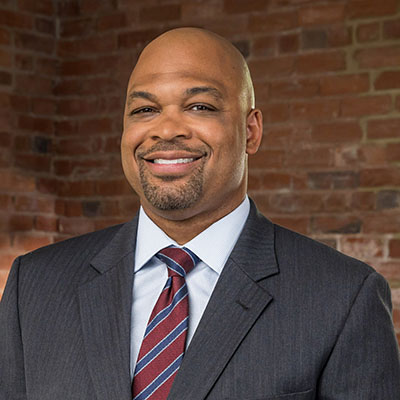In the aftermath of an unfortunate event such as a car crash or slip-and-fall, take the first step in protecting your interests. Choose a personal injury attorney that is right for you. In this post, we’ll dive into a crucial aspect of the attorney-client relationship: effective communication.

Navigating the complexities of personal injury law can feel like crawling through a maze, blindfolded. That’s why effective communication is paramount. Picture your attorney as your trusted navigator, guiding you through the twists and turns of the legal system toward the light at the end of the tunnel: a favorable outcome for your case.
By establishing expectations, being honest, respecting each other’s time, and having a dash of patience, you and your lawyer will make a formidable team.
Establish expectations
- Preferred method of communication: Are you a texting enthusiast, an email aficionado, or a fan of good old-fashioned phone calls? Let your attorney know how you prefer to communicate. Their goal is to make your life easier, whenever possible.
- Best time to reach out: Whether you are a night owl or an early bird, let your attorney know the best time to reach you. It also helps to find out their availability one wants to play phone tag for days on end.
- Designate the point person: Figure out who you should contact for specific questions or updates. Sometimes, the legal assistant might be the go-to for scheduling or case-specific queries. The attorney is likely the best for legal questions or concerns. Knowing who’s who can save you headaches down the road, and you cannot know until you ask!
Honesty is (definitely) the best policy

- No surprises, please: Your attorney needs all the facts, even the ones that might seem insignificant to you. Don’t hold back information – even if you think it might not be relevant. It is our job to decide what matters legally, and leaving out details can hurt your case.
- Trust lawyers with the natty gritty: Whether it’s medical records, witness statements, or anything else pertinent to your case, don’t hide them in a shoe box under your bed. Give your attorney everything they ask for promptly, regardless of whether you think it will be important down the line.
- Update with changes: If something changes in your situation or if you remember an additional detail, inform your attorney immediately.
Respect their time (and yours)
- Scheduled meetings are sacred: If you have an appointment, respect it like it’s a sacred vow. We’re all busy. When your attorney schedules time to meet with you to discuss your case, be respectful by showing up to the meeting on time or calling in advance if you need to reschedule.
- Be prompt and prepared: If your attorney requests specific documents or information, don’t procrastinate. Being prepared for meetings and providing requested info promptly can keep things moving smoothly.
The power of patience

- Rome wasn’t built in a day: Legal processes take time. Not every question or problem has an immediate answer or resolution available. You and your attorney are navigating a complex system to get you the best possible outcome. This process is inherently cumbersome and time-consuming. Thus, patience, trust, and grace are necessary virtues to ensure the value of your case is not sacrificed purely for speed.
- Follow up, but don’t freak out: Frequently, cases hit slow patches. Maybe your attorney is waiting on medical records or an initial offer from the insurance company. No matter the holdup, let’s say you have a question or want a status update and have not heard from your attorney in a while. What should you do? Easy. Pick up the phone and call. Remember, your attorney cannot know you have a question unless you ask.
A few odds & ends
- Updates are key: Ask your attorney about the frequency of updates. Knowing when to expect progress reports or case developments can ease your anxiety about the unknown.
- Communication is important, but you can have too much of a good thing. Sure, it’s important to keep your attorney in the loop, but bombarding them with every minor detail might not be the best use of their time (or yours). Trust that they’ve got your back and will reach out when necessary.
- Quality over quantity: When you do communicate with your attorney, be concise and to the point. You don’t want important details to get lost in the shuffle.
- If you don’t know, ask! Don’t hesitate to ask questions or seek clarification on any aspect of your case that you find confusing or unclear. After all, it’s why we are here. Personal injury attorneys exist to help navigate injured people through the complexities of the legal system.
- Organization & Documentation: Maintaining organized documentation and keeping track of dates and deadlines is key to effective communication with your attorney. Retain copies of any correspondence, medical records, bills, police reports, and other relevant documents to help move your case along.
- Decision-making can be collaborative: Your attorney is there to provide expert guidance, but ultimately, it’s your case. Your input matters, and a collaborative approach to decision-making ensures that your goals and priorities are taken into account every step of the way. Together with your attorney, you can make informed decisions that align with your best interests.
As in any relationship, effective communication is a two-way street. It requires openness, honesty, and active participation from both you and your attorney. At the end of the day, your attorney is your advocate, your ally, and your guide through the complexities of the legal system. By prioritizing clear and transparent communication throughout the legal process, you can maximize the likelihood of a successful outcome in your personal injury case.
If you have been injured through no fault of your own, you may be entitled to compensation. If you feel you may need legal guidance or representation, don’t hesitate to reach out. Our compassionate personal injury lawyers are here to guide you every step of the way. For a free and confidential case evaluation, call Allen & Allen today, at 866-388-1307.



